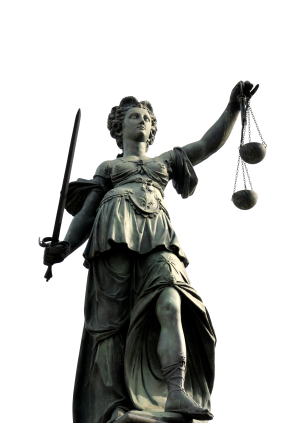Nearly two years ago I was approached by a couple, Jordan and Barbara Kimmel. They had an idea for a Most Trusted Company awards program. Initially I was not interested. But the Kimmels have a way of growing on you.
Two years later, they have remained devoted to the cause of promoting corporate trust, and have morphed their efforts across LinkedIn communities, a radio show, a blog, and numerous cross-introductions. Jordan is working on a book and Barbara continues to add to the network. Academic experts on trust they are not: but impresarios, producers, organizers, and aggregators of information—they most certainly are. And they’re finding their way to the epicenter of many trust-related discussions.
I spoke with them recently.
.jpg) CHG: Jordan and Barbara—I’ll just call you J&BK for the sake of print space when this interview gets published—why and how did you come to be interested in trust?
CHG: Jordan and Barbara—I’ll just call you J&BK for the sake of print space when this interview gets published—why and how did you come to be interested in trust?
J&BK: We have been entrepreneurs and business owners for many years. Our respective professions bring us into daily contact with the media, both on-air and behind the scenes. We have both witnessed a steady deterioration in news, particularly in regard to the frequency and severity of corporate scandals and, along with many others, we have been disheartened by the breakdown in corporate trust.
We began to question whether this was merely negative media bias or something much more pervasive throughout the culture of corporations. Understanding the importance of trust within business, we decided to take a closer look at the measurable components of trustworthy business behavior and identify those companies that are making tangible strides in this regard.
CHG: Okay, but why?
J&BK: Well, a couple of reasons. One is frankly to balance the depressingly negative news on trust that’s so prevalent these days. We’ve both seen some very high-trust aspects of business and wanted to give it some airtime too.
The other thing is to give some publicity to best practices—to point out where trust is being created and companies are behaving in a trustworthy manner and to help other companies understand how they’re doing it.
CHG: Give us a little context please on the two of you; where did you come from, what’s your background?
J&BK: We’re both from the New York area. Barbara got her undergraduate degree in International Affairs from Lafayette College and an MBA in marketing from Baruch. Over the years, through her firm Next Decade, Inc., she has focused on media campaigns (with a concentration on authors and book publishing) and consulting start-ups on building marketing and communications planning.
Jordan got his BA in Economics and an MS in Urban and Policy Sciences, both from SUNY Stony Brook, and has spent the last 30 years in financial services where he’s made hundreds of media appearances. He’s a regular on CNBC and Fox News and his third book, the Magnet Method of Investing, was released by John Wiley in August 2009.
CHG: Tell us how the name Trust Across America came about?
J&BK: The trust crisis extends far beyond the North American boundaries but we had to start somewhere with something manageable. We decided to begin looking at trustworthy behavior in corporate America, and so created the name that seemed to be the most fitting for what we were trying to do—at least in the short-term. Full disclosure: it was our youngest son Seth, age 13, who actually came up with that particular name
CHG: What does Trust Across America consist of today? Is this the final form you envision?
J&BK: As of today, TAA is divided into five main initiatives:
· Developing a framework for measuring organizational trustworthiness,
· Conducting an annual audit of trustworthy behavior in public companies and identifying leaders,
· Compiling independent and multidisciplinary company and industry audits and reports,
· Providing media opportunities and access, and
· Collaborating in educational and policy programs.
CHG: Let’s talk about the first two. You’ve developed a proprietary model for operationally defining the trustworthiness of a company, right? What are the components of that model?
J&BK: The measurement of organizational trustworthiness integrates five trust drivers that form an acronym called FACTS™, which stands for:
1. Financial Stability and Strength
2. Accounting Conservativeness
3. Corporate Integrity
4. Transparency
5. Sustainability
In turn, those five drivers are taken from three separate databases. Each of the drivers is given equal weighting.
CHG: Let’s explain why the equal weighting:
J&BK: Well, you were one of those we consulted with to make that determination, Charlie. We concluded that an objective definition of corporate trustworthiness just does not exist and we felt we had pretty much identified the primary trust drivers brought to our attention by countless other expert sources we had spoken to. So frankly, there was no good reason to give them anything other than equal weighting. That seemed sensible to us, not wrong, and more defensible than any other particular weighting. So that’s what we did.
CHG: I agree, very sensible. And—what has the data shown?
J&BK: Applying these trust drivers, we completed our first comprehensive audit of trustworthy business behavior in November 2010. It identified 59 public companies out of almost 3,000 that reached the “Gold Level” of trustworthy business behavior…above average performance in the five criteria listed above.
This audit is the first holistic dashboard analysis of the trustworthiness of the largest publicly traded companies. It provides C-Suite executives with a trust health checkup that highlights areas of both strength (leverage points) and weakness (vulnerabilities) within their own company and with their competitors.
CHG: Let’s just take a moment to acknowledge just what it is that you’ve done here. This is not a poll, a temperature-taking, a popularity contest, a reputational trend instrument. This is something quite different: this is new. This is an objectively-defined, independently-measured set of criteria for defining and ranking the trustworthiness of corporations. Right?
J&BK: Correct. This is not the Edelman Trust Barometer, or the Harris Poll of trusted industries. Those are polls, measuring the trusting-ness of various constituencies regarding business and institutions. If a poll says people don’t trust banks, you don’t know if people are fearful, or if banks really are objectively untrustworthy. FACTS™ clearly focuses on the second: and company by company too. We can not only tell you how trustworthy banking is compared to the oil industry, but what the scores are for JPMorganChase and Exxon.
CHG: And you can produce individual company results?
 J&BK: Yes. Our FIDES™ (Roman goddess of trust) proprietary software lets us generate “trust” audits for several thousand publicly-traded companies, sectors and industries.
J&BK: Yes. Our FIDES™ (Roman goddess of trust) proprietary software lets us generate “trust” audits for several thousand publicly-traded companies, sectors and industries.
CHG: Well, you can’t just fly in and depart without naming a few names. Give us some findings. Who’s tops, for example?
J&BK: We’re not releasing the audit results yet, but I’ll tell you the number 1 company is an oil company.
CHG: An oil company takes the top spot! That’s fascinating! Will people buy that?
J&BK: What’s to buy? The data speaks for itself. They may argue about the definition, but what we’ve done is take data out of the argument game. It is what it is.
CHG: Where can people get access to whatever you release, whenever you release it?
J&BK: Our updated website is set to launch around December 15 at www.trustacrossamerica.com. It will have lots of new and useful information.
On December 22 we are hosting our Holiday Festival of Trust on our radio show, Trust Across America, that airs every Wednesday from noon to 1PM EST, and will be “counting down” the Top 10 companies during the show. You can also join our group on LinkedIn called Trust Across America for frequent updates and to collaborate with us.
CHG: You’re also doing a ton of networking. Tell us about that.
J&BK: We have a growing network (we call it our Trust Ecosystem) of academics, consultants and company experts from a number of disciplines including trust, ethics, reputation, integrity, leadership, governance, CSR (Corporate Social Responsibility), ESG (Environmental, Social and Governance), sustainability and responsible investing. Our main “social network” is our Trust Across America group on LinkedIn. We provide opportunities for discussion and dialogue about trustworthy business behavior among members, with the media, and other interested groups and organizations.
We also host a weekly live radio show and draw many of our guests from our core group.
We develop educational and policy programs: we are collaborating with a growing list of professional organizations. We participated in a program with the Centre for Sustainability and Excellence in New York at the beginning of December.
CHG: Along the way, you’ve met and talked with (and interviewed, and introduced, and blogged about, etc.) a number of people in the ‘trust business.’ Care to drop a few names?
J&BK: Well, the trust business is “big”, meaning that that it covers lots of corporate territory. We continue to be both surprised and impressed by the many different professional perspectives taken when evaluating trust within organizations. We also continue to be just as surprised at how many experts operate within their own silos, examining trust from singular perspectives.
Since we’re a collaborative group, and we don’t want to appear to be playing favorites, here’s a link to our radio show guests. Most of these people are part of our growing trust ecosystem and we certainly want to show all of them equal gratitude for helping us get as far as we are today.
CHG: I’m really curious to hear—what have you learned about trust so far? What are some things that maybe you didn’t know about before, but now you have come to believe?
J&BK: Probably the stickiest thorn has been the lack of a clear definition of trust/trustworthy behavior. It’s hard to get consensus and find solutions for something that cannot be defined.
Also, different stakeholders have different trust “needs.” Companies must find ways to address all of them to be holistically trustworthy. No one thing does the trick.
It seems that corporate culture drives trust. Unlike some of the factors that contribute to corporate trustworthiness, instituting a trust culture is much harder than, for example, implementing a sustainability program. It requires a cultural shift that goes far beyond an individual job title, division or department.
Finally, it’s not uncommon to see a disconnect between public perception of a company’s trustworthiness and reality. Interestingly, this works in both directions. While there are not many companies that are “hitting on all cylinders,” conversely, those names that do rise to the top may be missing a communications opportunity.
CHG: What do you think of as the value of trust in business?
J&BK: As so many have already pointed out, the value of trust to a business cannot be over-estimated. It’s the lubricant that makes a business run smoothly, efficiently and with long term viability. Without internal and external organizational trust it runs unevenly and its future becomes questionable.
CHG: What are your thoughts about how trust can best be encouraged in business?
J&BK: Increasing numbers of companies are beginning to understand the value of acting in a trustworthy manner. In the words of Peter Firestein, this cannot take the form of a tactical marketing maneuver. It must stem from the underlying values of the firm. Our audit results show that those companies that are embracing trustworthy behavior—as part of their corporate culture—may also have better financial returns and, in the long term, outperform their competitors.
There is growing public awareness and interest in:
1. Companies that aren’t just “doing things right” but are culturally “doing the right thing”: whether you choose to call it a “green washing” or “trust washing” smokescreen, the public is waking up to insincere corporate claims.
2. Companies that treat all stakeholders fairly and with respect: we must move away from the old business model of short term “quarterly” shareholder maximization.
3. Companies that take a longer term view of their business practices and values by integrating various financial and non-financial performance metrics.
Many believe that some of these factors are beginning to drive consumer behavior. If we can help steer media attention toward companies doing it best, those companies will enjoy a virtuous cycle. They’ll attract better employees, increase revenues and garner greater customer and community support. Other companies will emulate them and trust will pull them down a righteous path. Finally, we don’t think that trustworthy behavior should be dictated by more government enforcement and more regulation.
CHG: That’s a big one you dropped there; you’re saying corporations can become more trustworthy without being regulated?
J&BK: At least to some extent, sure; that’s where we hope our efforts will pay off.
CHG: What do you envision for Trust Across America ultimately; in your wildest dreams, what would you like to see it accomplish?
J&BK: Our goal is to help build trust in corporate America. If we can push enough in the right direction, maybe that’ll be enough. We want to help companies see themselves through a trust lens. If that happens, the actions of consumers and investors will prompt companies to act in more trustworthy ways and our mission will be accomplished. By collaborating with other thought leaders, we believe this can be accomplished. President Ronald Reagan kept a sign on his desk that read: “It’s amazing how much you can accomplish when you do not care who gets the credit.”
 Join us at one or more upcoming Trusted Advisor Associates events. This Fall, we’ll be hosting and participating in events in Baltimore, MD; Minneapolis, MN; and through globally accessed webinars.
Join us at one or more upcoming Trusted Advisor Associates events. This Fall, we’ll be hosting and participating in events in Baltimore, MD; Minneapolis, MN; and through globally accessed webinars. Wed. Nov. 2nd Global Charles H. Green & Andrea P. Howe
Wed. Nov. 2nd Global Charles H. Green & Andrea P. Howe Wed. Nov. 9th Global Charles H. Green
Wed. Nov. 9th Global Charles H. Green Thurs. Nov. 10th Global Stewart Hirsch
Thurs. Nov. 10th Global Stewart Hirsch![]() Wed. Nov. 16th Baltimore, MD Charles H. Green
Wed. Nov. 16th Baltimore, MD Charles H. Green![]() Fri. Nov. 18th Minneapolis, MN Charles H. Green
Fri. Nov. 18th Minneapolis, MN Charles H. Green The next Trusted Advisor Mastery Program is forming and registration is $3900/person. This is the last chance to register for this program at this price before it increases for 2012. Please email Tracey Del Camp of your interest and she’ll be in touch with more specifics.
The next Trusted Advisor Mastery Program is forming and registration is $3900/person. This is the last chance to register for this program at this price before it increases for 2012. Please email Tracey Del Camp of your interest and she’ll be in touch with more specifics.
 First of all, stifle that snarky laugh about awards for trust in business. Yes, trust in business is at an all-time low. All the more reason to identify best practices, celebrate them and help us to learn from them. And while most efforts at measuring trust fall short, there’s a new award ceremony in town and it’s looking extremely, well, trustworthy.
First of all, stifle that snarky laugh about awards for trust in business. Yes, trust in business is at an all-time low. All the more reason to identify best practices, celebrate them and help us to learn from them. And while most efforts at measuring trust fall short, there’s a new award ceremony in town and it’s looking extremely, well, trustworthy.
.jpg) CHG: Jordan and Barbara—I’ll just call you J&BK for the sake of print space when this interview gets published—why and how did you come to be interested in trust?
CHG: Jordan and Barbara—I’ll just call you J&BK for the sake of print space when this interview gets published—why and how did you come to be interested in trust? J&BK: Yes. Our FIDES™ (Roman goddess of trust) proprietary software lets us generate “trust” audits for several thousand publicly-traded companies, sectors and industries.
J&BK: Yes. Our FIDES™ (Roman goddess of trust) proprietary software lets us generate “trust” audits for several thousand publicly-traded companies, sectors and industries.